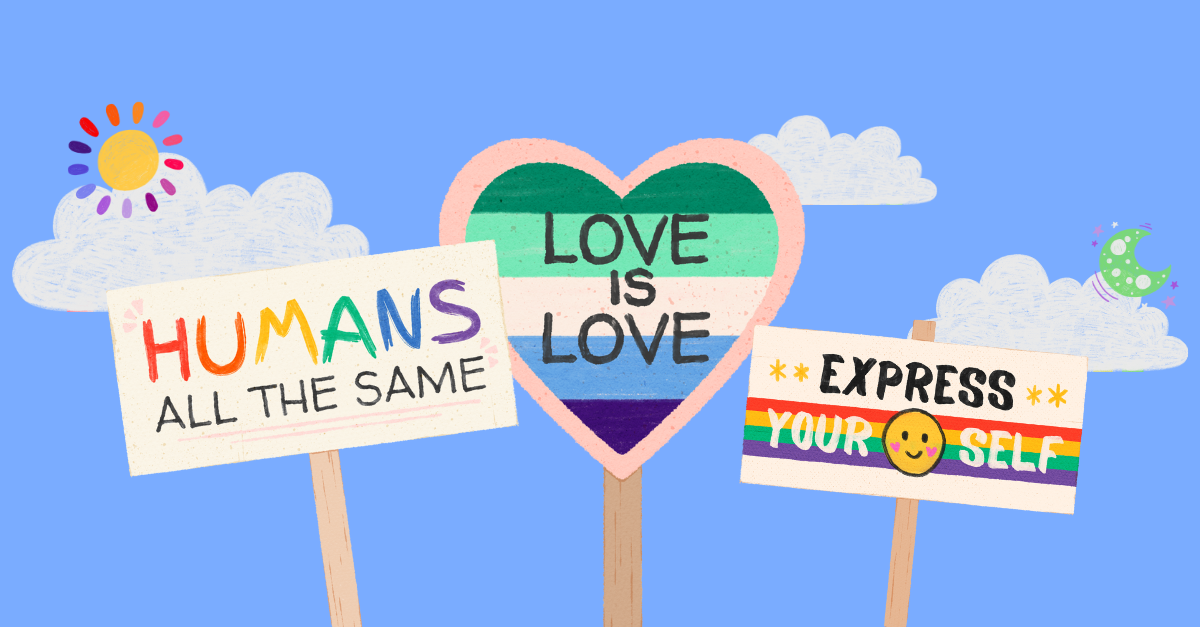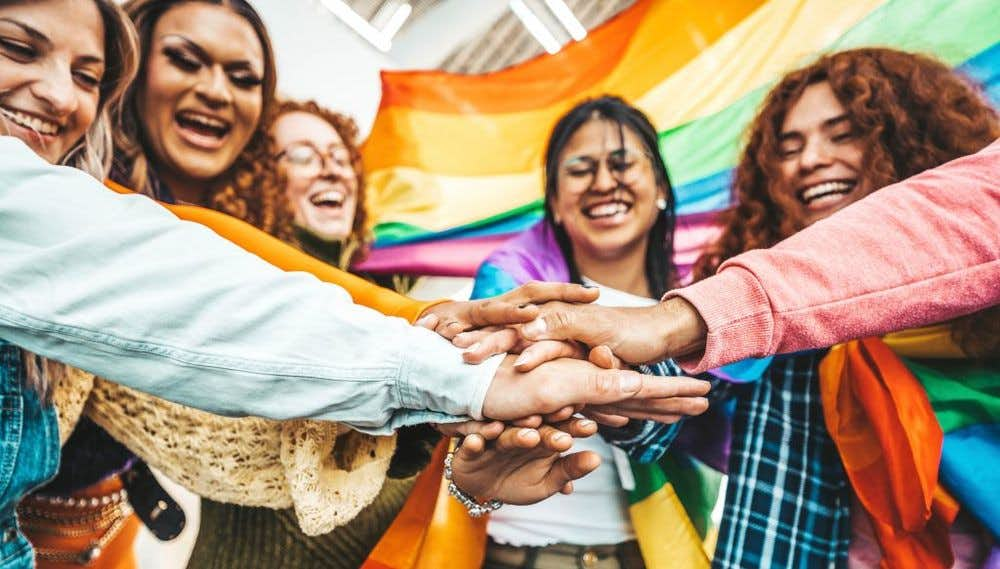June 7th, 2023

LGBTQIA+ folks are uniquely at risk for both depression and anxiety. We know that 18% of the LGBTQIA+ youth population currently have depression, and when compared to the national rate of 8.2%, that is a huge increase. You might be asking yourself, why is this so?
In order to understand the full picture of how depression, anxiety, and the LGBTQIA+ community are linked, one must understand the Minority Stress Model. The Minority Stress Model posits that those who are part of a minority, such as the queer population, are exposed to more stress than other populations due to the stigma they face. This contributes to the lesser healthcare they receive, and to their own shame or embarrassment surrounding receiving mental health services.
Historically, being a part of the LGBTQIA+ community was considered a mental illness until 1973, when it was taken out of the DSM-5. Up until that time, many queer people’s anxiety and depression were just blamed on their sexuality, instead of considering past trauma history or symptoms. Before this time, being queer was illegal. Illinois was actually the first state to decriminalize homosexuality in 1961.
Though we have been making strides toward better understanding and care for the LGBTQIA+ population, this community still faces many challenges in receiving care and support for anxiety and depression.
As previously mentioned, people who identify as part of the LGBTQIA+ community face higher rates of anxiety and depression when compared to the general population. They face unique challenges when seeking mental health services. These include:

What is depression? Depression negatively impacts the way you think about yourself and the world, the way you feel, and the way you may act. People with depression experience sadness, and no longer are able or have an interest in doing the things that used to make them happy or healthy. It impacts your relationships, and your ability to work.
There are some forms of therapy that are specific to helping LGBTQIA+ people who have depression. One form of depression therapy for this population works from an anti-oppression framework and dedicates certain sessions to their own internalized homophobia, oppressive experiences, and coming out.
Those folks who experienced these treatment options saw their depression symptoms significantly decrease, and an increase in positivity around their self-esteem. Talking about oppression helps depression!
To address these challenges on a wider scale, one component would be to create a more inclusive clinical environment for those seeking mental health services. This may mean training for clinical providers that includes awareness of LGBTQIA+ affirmative practices and would address the history of discrimination that the queer population has previously faced when seeking treatment for depression management and other mental health concerns.

There are many ways LGBTQIA+ folks can manage depression and anxiety. These include meditation, journaling about feelings and experiences, reaching out to their community for support and validation, exercise (like going for a walk or yoga), and participating in activities that give them joy!
What is anxiety? Anxiety can be described as having worried thoughts, that are mostly future-orientated and long-term. Some people may avoid situations out of this worry, or have physical sensations due to their anxiety, like sweating, dizziness, or a rapid heartbeat.
One effective form of anxiety treatment for the LGBTQIA+ community is CBT. Cognitive Behavioral Therapy (CBT) for this group would aim to explore some of the core beliefs that this group may have due to the stigma they face.
Examples of these core beliefs may be:
CBT would help those in this community identify these beliefs, test them, and hopefully change these core beliefs into more constructive ones.

If you are a part of the LGBTQIA+ community and are looking for mental health resources, one important resource is the Gay and Lesbian Medical Association’s Provider Directory. This directory shares inclusive providers across the country that may be able to help.
Here are some crisis lines for the LGBTQIA+ community:

If you’re an ally to the LGBTQIA+ community, there are many things you can do to support a loved one’s mental health journey!
These include:

Our Services
Virtual/Online CarePHP and IOPAdult PsychiatryChild & Adolescent PsychiatryAdult TherapyChild & Adolescent TherapyCouples CounselingFamily TherapyGroup TherapyPsychological TestingTranscranial Magnetic Stimulation (TMS)Resources
Refer a PatientCareersClinical Training OpportunitiesOur ProvidersFree Mental Health TestsCommonly Prescribed MedicationsLocationsBlogIn The NewsClarity Through CharityClarity for AllQuick Links
Patient PortalFAQsAccepted InsurancesContact us